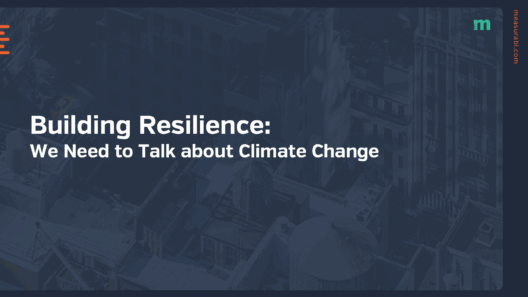Large-scale animal farming, often termed industrial agriculture, has emerged as a significant player in the dialogue surrounding climate change. Beyond the delightful bounty of dairy, eggs, and succulent meats that fill markets and plates worldwide, lurks a complex web of environmental implications. As society confronts escalating concerns over global warming, it becomes increasingly imperative to scrutinize the impacts of animal agriculture on our planet’s delicate ecosystems.
To begin, it is essential to understand the mechanisms by which livestock farming exacerbates climate change. The primary concern centers on greenhouse gases (GHGs), particularly methane, nitrous oxide, and carbon dioxide, which are all potent contributors to the greenhouse effect. According to various studies, livestock production accounts for a staggering percentage of global methane emissions—approximately 37%—which is significantly more impactful than carbon dioxide in terms of heat-trapping capability, being estimated to be 28 times more potent over a century.
Methane is primarily produced during the digestive processes of ruminant animals, such as cattle and sheep. These animals engage in enteric fermentation, a biological process which produces methane as a byproduct. Furthermore, the management of manure from these animals presents additional environmental challenges. When manure decomposes anaerobically—without sufficient oxygen—it emits vast amounts of methane and nitrous oxide, further intensifying the climate crisis.
Shifting focus to the nitrous oxide emissions, these result predominantly from the application of fertilizers used in feed production for livestock. The Agricultural sector requires monumental quantities of fertilizers to ensure the growth of crops meant for animal feed. The impact of these substances extends beyond mere emissions; fertilizers also lead to soil degradation and waterway pollution through runoff, perpetuating a cycle of ecological imbalance.
Yet, the tale extends far beyond mere emissions derived from animal waste. The sheer scale of land required for both animal grazing and feed crop cultivation presents a grave threat to terrestrial ecosystems. The livestock industry claims approximately 75% of the world’s agricultural land, yet it provides only 18% of the calories consumed by humankind. Such disproportionality raises significant ethical and environmental questions about the sustainability of current agricultural practices.
Moreover, the deforestation caused by expanding pastures and feed crop production adds another layer of complexity to the discourse on animal farming and climate change. Rainforests, often referred to as the planet’s lungs, play a critical role in carbon sequestration. The conversion of these vital ecosystems into cattle ranches or mono-crop plantations undermines their ability to capture carbon dioxide from the atmosphere, thereby exacerbating global warming. The Amazon rainforest, once revered for its biodiversity and climate regulation, faces unprecedented deforestation rates largely driven by the insatiable demand for beef and animal products.
As consumers become more aware of these issues, certain industries are beginning to pivot their practices towards sustainability. The emergence of regenerative agriculture represents a promising alternative to conventional farming methods. Regenerative practices not only prioritize animal welfare but also aim to restore ecosystems and increase soil health through managed grazing. This paradigm shift allows for improved carbon sequestration, effectively turning farmland into a net carbon sink, rather than a source of emissions.
Another potential solution is adopting plant-based diets. A comprehensive shift toward reduced animal product consumption could significantly alleviate the environmental burden posed by large-scale animal farming. Research suggests that if the global population adopted a plant-based diet, world food-related emissions could be reduced by up to 70% by 2050. This would not only help combat climate change but also promote better health outcomes, creating a nexus of benefits for individuals and the planet alike.
However, the transition to more sustainable food systems does not require the complete elimination of animal farming. Instead, advocates for climate action can encourage responsible, small-scale livestock farms that uphold ethical standards, prioritize native biodiversity, and employ regenerative practices. Farmers who prioritize local, sustainable methods can cultivate pasture-raised livestock that contribute to carbon sequestration, enhance biodiversity, and still provide communities with essential nutritional sources.
Technology also plays a critical role in addressing the challenges posed by animal farming. Innovations in feed efficiency, methane reduction methods, and waste management systems hold promise for minimizing the environmental impact of livestock. For example, efforts such as developing feed additives that inhibit methane production during digestion are garnering attention. These technologies have the potential to reduce methane emissions, while simultaneously improving the productivity of animal farming.
In conclusion, large-scale animal farming undoubtedly drives global warming through its emissions, land-use changes, and resource-intensive practices. Yet, the narrative is not solely one of despair; it embodies hope through systemic change. The opportunity to re-envision our agricultural practices, embrace regenerative methodologies, and promote responsible consumption exists. It is within our collective power to mitigate the impacts of climate change by scrutinizing the systems we support and fostering a sustainable, equitable approach to food production. As we grapple with the reality of our changing climate, the lessons learned from our relationship with animal farming will be pivotal in shaping a resilient future.








